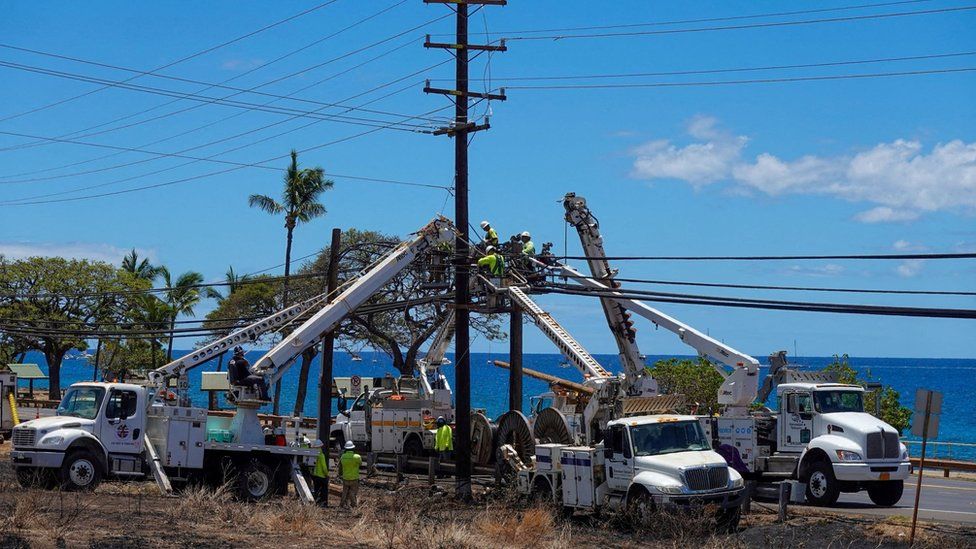ARTICLE AD BOX
 Image source, Reuters
Image source, Reuters
Witnesses say they saw sparks from power lines which ignited fires during a hurricane
By Emily McGarvey
BBC News
Maui County is suing energy firm Hawaiian Electric, saying it failed to turn off electric equipment before wildfires started on the island.
If power lines had been switched off during exceptionally high winds and dry conditions, the destruction could have been avoided, the lawsuit said.
The BBC has reached out to Hawaiian Electric for comment.
Witnesses say they saw sparks from power lines which ignited fires after utility poles were damaged by winds, caused by a passing hurricane.
The lawsuit said the utility company knew high winds "would topple power poles, knock down power lines, and ignite vegetation".
The company was warned in advance of dangerous wildfire conditions by the National Weather Service, the lawsuit added.
"Defendants also knew that if their overhead electrical equipment ignited a fire, it would spread at a critically rapid rate," it said.
"Severe and catastrophic losses... could have easily been prevented" if the firm had a safety shut-off plan during high wind events, similar to that of other utility companies, it suggested.
It further claimed that Hawaiian Electric had a duty to properly maintain and repair its power lines and keep vegetation trimmed to prevent contact with overhead lines and other electric equipment.
The county said it is seeking compensation for damage to public property and resources in Lahaina and in nearby Kula.
The wildfire that ripped through Hawaiian town of Lahaina on 8 August destroyed most of the historic town and the fires are now considered the worst natural disaster in Hawaii state history.
Authorities are now expected to make public a list of the missing in the coming days to try to narrow the search.
Search teams combing through the rubble are finding only bones or fragments of bodies.
The county said: "Maui County stands alongside the people and communities of Lahaina and Kula to recover public resource damages and rebuild after these devastating utility-caused fires.
"These damages include losses to public infrastructure, fire response costs, losses to revenues, increased costs, environmental damages, and losses of historical or cultural landmarks."
Temporarily shutting off power to reduce fire risk is a tactic used in western US states, where wildfires are common. In California, power lines have been blamed for half of the state's most destructive wildfires.

 1 year ago
48
1 year ago
48








 English (US) ·
English (US) ·